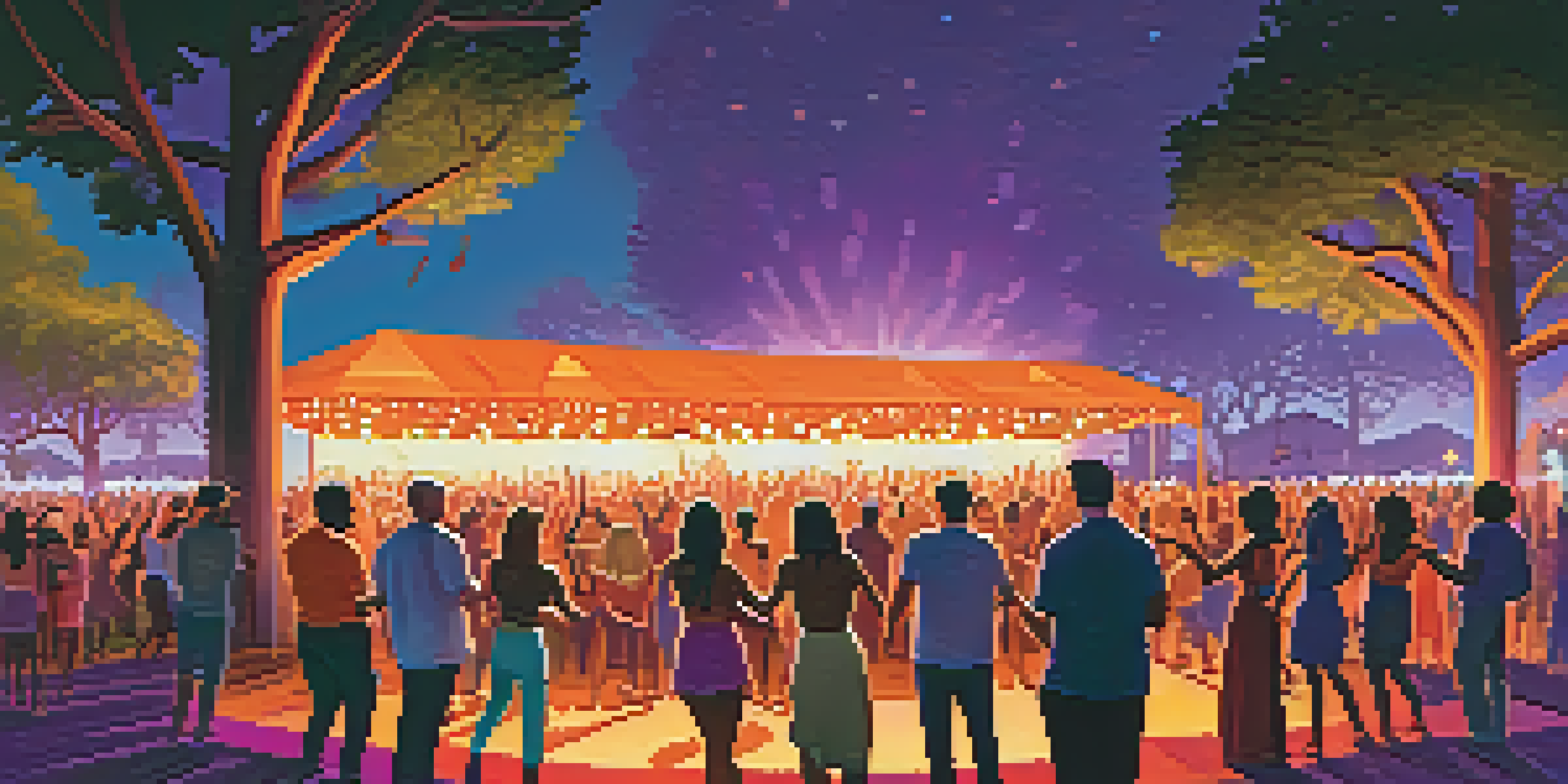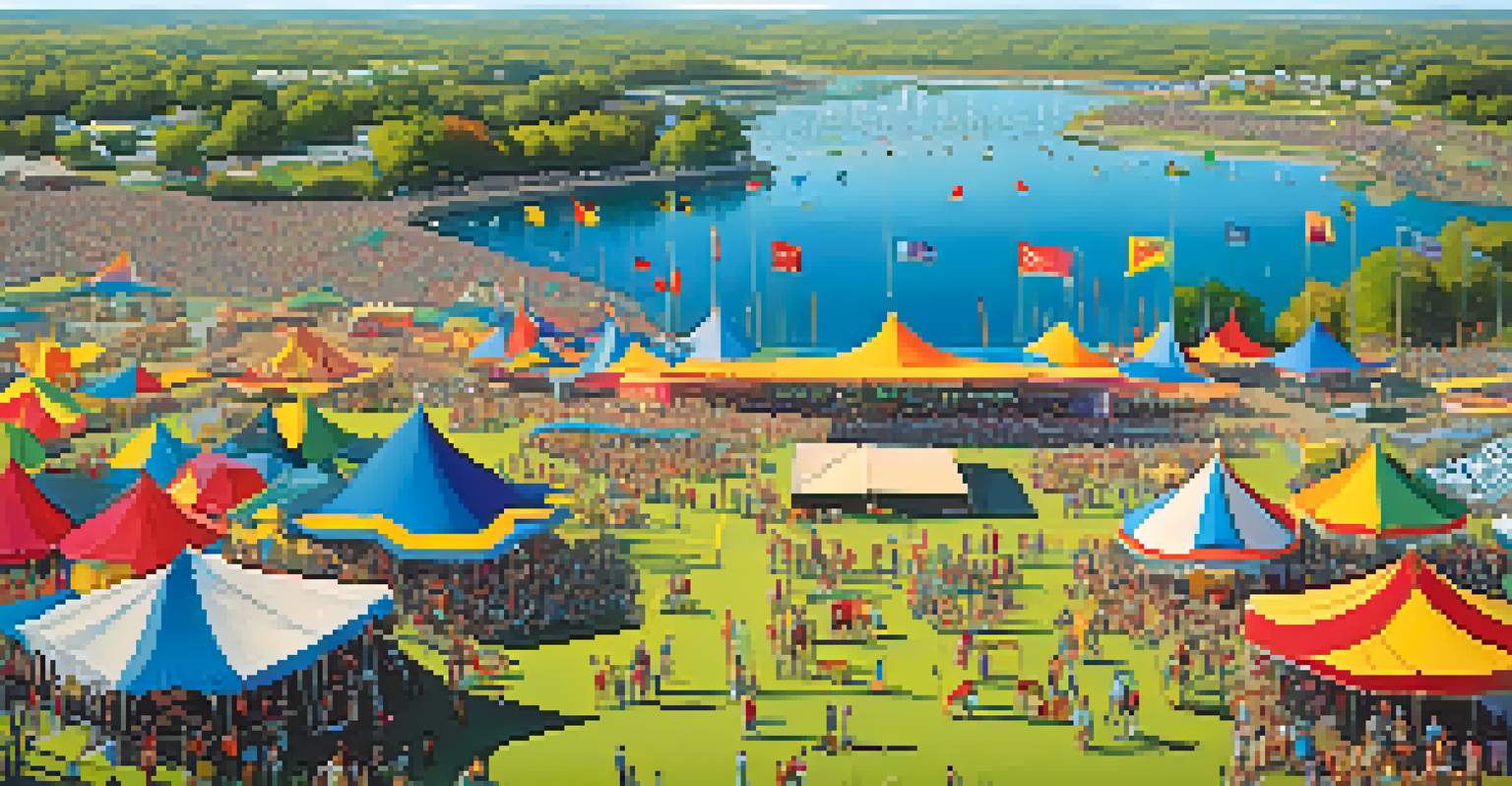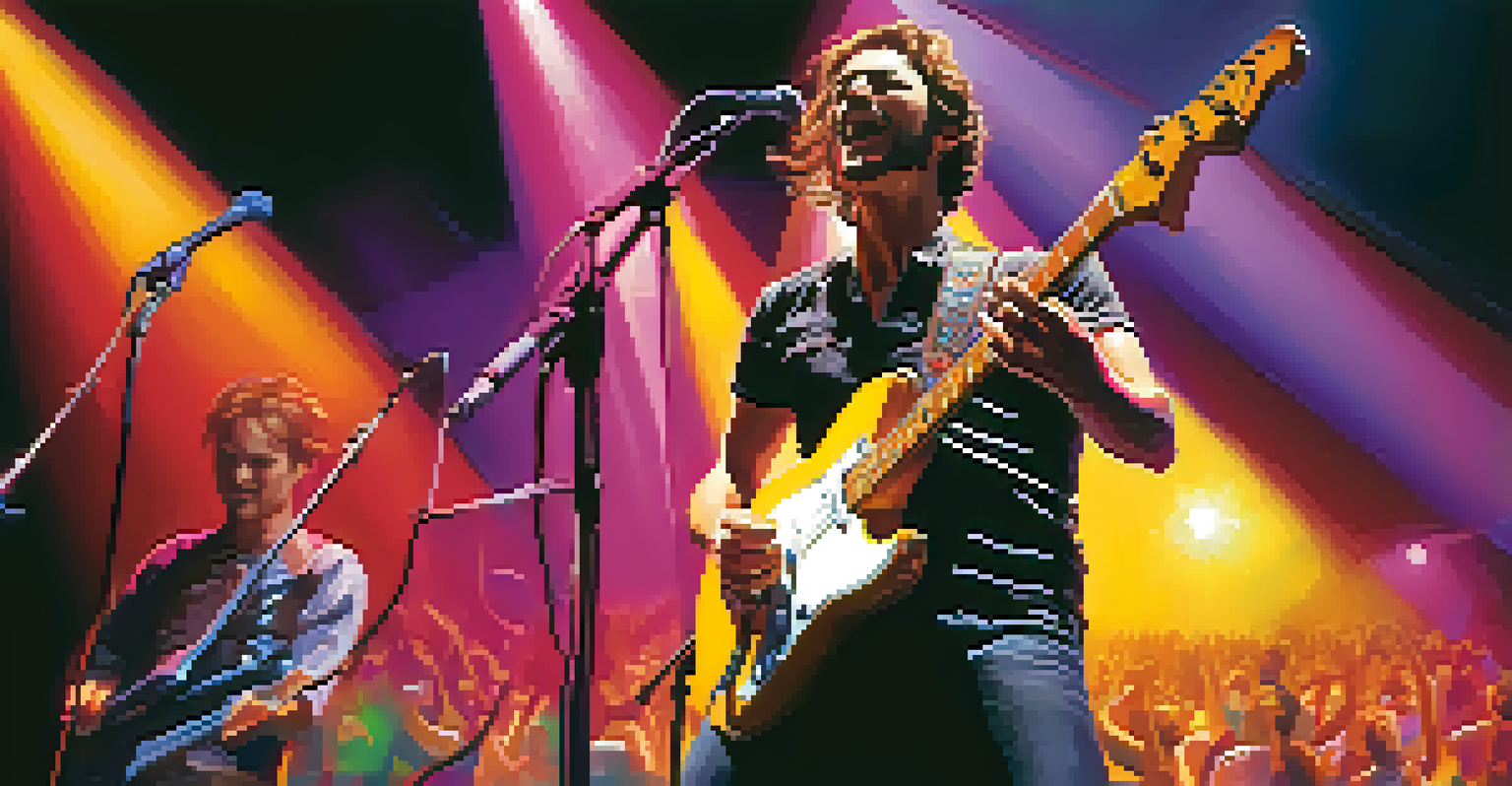The Rise of Music Festivals: A Global Cultural Phenomenon

The Origins of Music Festivals: A Brief History
Music festivals have deep roots, tracing back to ancient rituals and communal gatherings. They served as a way for communities to come together, celebrate, and share music. Over time, these gatherings transformed into larger events, incorporating various genres and attracting wider audiences.
Music can change the world because it can change people.
The modern music festival, as we know it today, began in the 1960s, with iconic events like Woodstock setting the stage for future gatherings. Woodstock wasn't just about music; it became a symbol of the counterculture movement, emphasizing peace, love, and unity.
As the years went by, the festival scene exploded, evolving into a multi-billion-dollar industry that spans the globe. From Coachella in the U.S. to Glastonbury in the U.K., these events have become cultural landmarks that draw millions each year.
The Explosion of Genres: Something for Everyone
One of the most exciting aspects of music festivals is their diversity. From rock and pop to electronic dance music (EDM) and hip-hop, there's a festival that caters to every musical taste. This variety keeps the festival scene fresh and engaging, allowing attendees to discover new artists and genres.

For instance, festivals like Bonnaroo showcase an eclectic mix of genres, making it a melting pot of musical experiences. Attendees might find themselves swaying to indie folk one moment and dancing to hip-hop the next, fostering a sense of community among diverse music lovers.
Music Festivals Have Rich Histories
From ancient rituals to modern icons like Woodstock, music festivals have evolved into significant cultural events.
Moreover, the inclusion of international acts at festivals has broadened the horizon for music enthusiasts. Festivals are no longer just local events; they now celebrate global talent, creating a rich tapestry of sounds and cultures.
The Role of Technology in Shaping Festivals
Technology has revolutionized the way music festivals are organized and experienced. From ticket sales to live streaming, advancements have made festivals more accessible than ever before. Fans can now purchase tickets online, reducing the hassle of waiting in long lines.
Festivals are the best place to experience music in its purest form, connecting us all through rhythm and harmony.
Live streaming has also allowed those who can't attend in person to experience the magic from home. Platforms like YouTube and Twitch make it possible for fans to catch performances in real time, bridging the gap between artists and their audience.
Additionally, social media plays a crucial role in building anticipation and community around festivals. Hashtags, Instagram stories, and TikTok videos create a buzz, allowing attendees to share their experiences and connect with others, even before the event begins.
The Economic Impact of Music Festivals
Music festivals have become significant economic drivers for cities and regions. They attract tourists from around the world, boosting local businesses like hotels, restaurants, and shops. This influx of visitors can lead to a considerable economic boost for the host city.
For example, the Coachella Valley Music and Arts Festival generates hundreds of millions of dollars for the local economy each year, demonstrating the financial benefits of hosting such events. The investment in infrastructure and services for festivals often pays off in terms of economic growth and job creation.
Diverse Genres Cater to All Tastes
Music festivals showcase a wide range of genres, fostering a sense of community among diverse music lovers.
However, the economic impact isn't just about profits. Festivals often invest in local communities and charities, contributing to social initiatives that promote sustainability and cultural enrichment.
The Environmental Considerations of Festivals
With the rise of music festivals comes the responsibility of addressing environmental concerns. Large gatherings can have significant ecological footprints, prompting organizers to adopt more sustainable practices. This includes waste reduction, recycling initiatives, and eco-friendly transportation options.
Many festivals are now making a concerted effort to promote sustainability. Events like Glastonbury have implemented measures to minimize waste and encourage attendees to use reusable containers, thereby fostering a culture of environmental consciousness.
Additionally, some festivals are partnering with environmental organizations to raise awareness about climate change and conservation efforts. This not only helps the planet but also resonates with attendees who value sustainability.
The Social Experience: Building Community and Connections
At their core, music festivals are about community. They provide a unique environment where people from various backgrounds come together for a shared love of music. This sense of belonging fosters connections, friendships, and unforgettable memories that often last a lifetime.
Many festival-goers describe their experiences as transformative, as they engage with like-minded individuals and immerse themselves in a vibrant atmosphere. The communal spirit is palpable, whether it's dancing with strangers or bonding over favorite tracks.
Sustainability is Key for the Future
As the festival industry grows, sustainability and environmental responsibility are becoming essential considerations.
Moreover, festivals often create inclusive spaces where diversity is celebrated. They serve as platforms for marginalized voices, promoting equality and representation in the music industry, which strengthens the sense of community even further.
The Future of Music Festivals: Trends and Innovations
As music festivals continue to evolve, new trends and innovations are emerging. One notable trend is the incorporation of immersive experiences, where attendees can engage with art installations, workshops, and interactive performances. This approach enhances the overall festival experience, making it more than just about the music.
Additionally, the rise of hybrid festivals—combining in-person and virtual experiences—has become a popular model. This allows festivals to reach wider audiences, accommodating those who can't attend physically while still engaging them in the festivities.

Looking ahead, the future of music festivals will likely revolve around sustainability, inclusivity, and technological advancements. As the industry adapts to changing audiences and societal demands, we can expect even more innovative and enriching experiences.